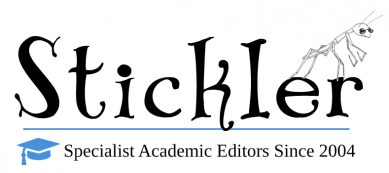When it comes down to the details, there are so many small differences between British and American English. It’s confusing and time consuming if you don’t have working experience in both (like we do here at Stickler Proofreading). In this article, we’ll outline five of the top things to look for if you’ve been asked to use one or other of these two styles, starting with three common spelling differences.
Why are there even differences between British and American English?
In terms of spelling, it all has to do with that American rebellious spirit. Noah Webster (yes, the Webster’s Dictionary one) wanted to standardize spelling in English after the American Revolution. Basically, Webster wanted words to be spelled the way they were pronounced, but he also wanted to distinguish the American way of spelling from the British one as a show of true independence
1. –er vs. –re at the end of words
One of the most common spelling differences between British and American English is the British –re, which is a linguistic nod to the many English words that come from French. It’s one of the most common giveaways that show which form of English is being used. Examples include:
- center (US) vs. centre (UK)
- fiber vs. fibre
- liter vs. litre
2. –l vs –ll at the end of past-tense verbs and gerunds
A lesser-known difference between British and American English is adding an extra “l” to a word when you create the past tense or gerund (–ing) form. This only applies to certain words, so take note: If the word ends in a vowel and then –l, British English usually requires “ll” when adding –ed or –ing, whereas American English has dropped that extra “l.”
Examples include:
- traveled (US) vs. travelled (UK)
- fueling vs. fuelling
- labeled vs. labelled
3. –ize vs. –ise
In American English, words such as “organize” always take the “–ize” form. However, just to confuse matters, in British English both “organize” and “organise” are acceptable (in fact, the Oxford English Dictionary prefers “–ize”). Which one you use can depend on personal preference or house style. Other examples include:
- “civilization” vs. “civilisation”
- “acclimatization” vs. “acclimatisation”
- “nationalizing” vs. “nationalising”
This very comprehensive list gives 1,800 of the most common words that are spelled differently in British and American English.
4. Punctuation with quotation marks
This one is pretty simple. In British English, the quotation mark always comes before the punctuation, unless the quotation in question forms a full sentence. In American English, the punctuation always goes inside the quotation mark (except in rare instances where house style prefers otherwise). Here’s an example:
- Jootun et al. (2009) stated that this demonstrates the degree of influence that the “researcher exerts on the research findings,” (p. 29) regardless of whether this influence is intentional or unintentional. (US)
vs.
- Jootun et al. (2009, p. 29) stated that this demonstrates the degree of influence that the “researcher exerts on the research findings”, (p. 29) regardless of whether this influence is intentional or unintentional. (UK)
5. Creation of past tense
For the most part, Americans use –ed to create past tense, as in “learned,” “burned,” and “smelled.” In British English, however, it is possible in many cases to form past tense with either –t or –ed. “Learnt,” “burnt,” and “smelt” are all acceptable forms of past tense in British English.
You can check out this chart for a more comprehensive list of examples.
Why do these differences matter?
If you never plan to study abroad or publish work in international journals or through large publishers, then this entire subject may be moot. However, if are pursuing one or more of these paths, it’s highly likely that you’ll need to follow style guidelines throughout your academic career, and in this case it pays to know the basic differences between British and American English.
These five differences are only the tip of the iceberg. There are many more spelling differences and colloquialisms that can trip you up. But not to worry—we have experience on both sides of the ocean!
You might know that Jinny Hayman, Stickler’s owner and founder, is originally from the UK and has been living in the States for many years. As a result, we here at Stickler are able to provide editing and proofreading services to both British and American English, including navigating the lesser-known nuances between the two. Not sure what your journal or school prefers? No problem, just let us know where you plan to submit your work and we’ll do the rest!

